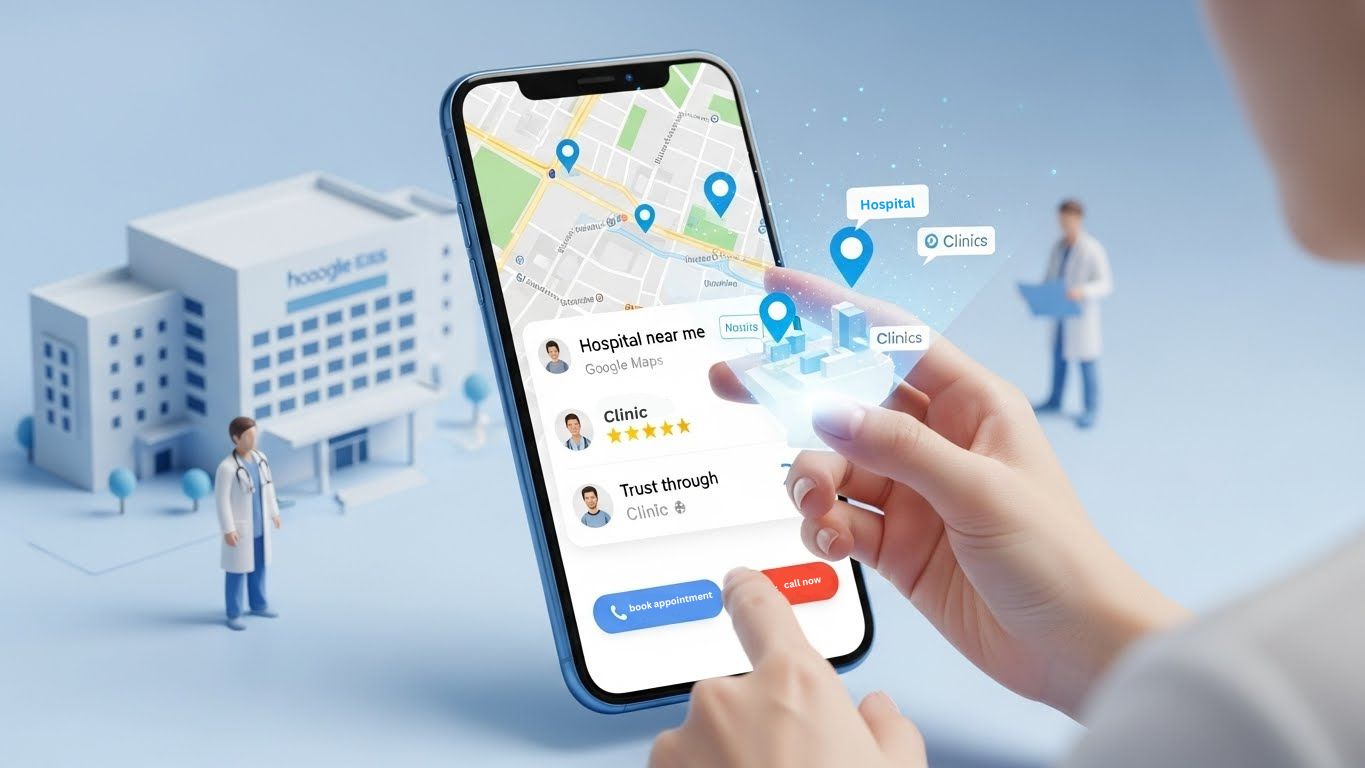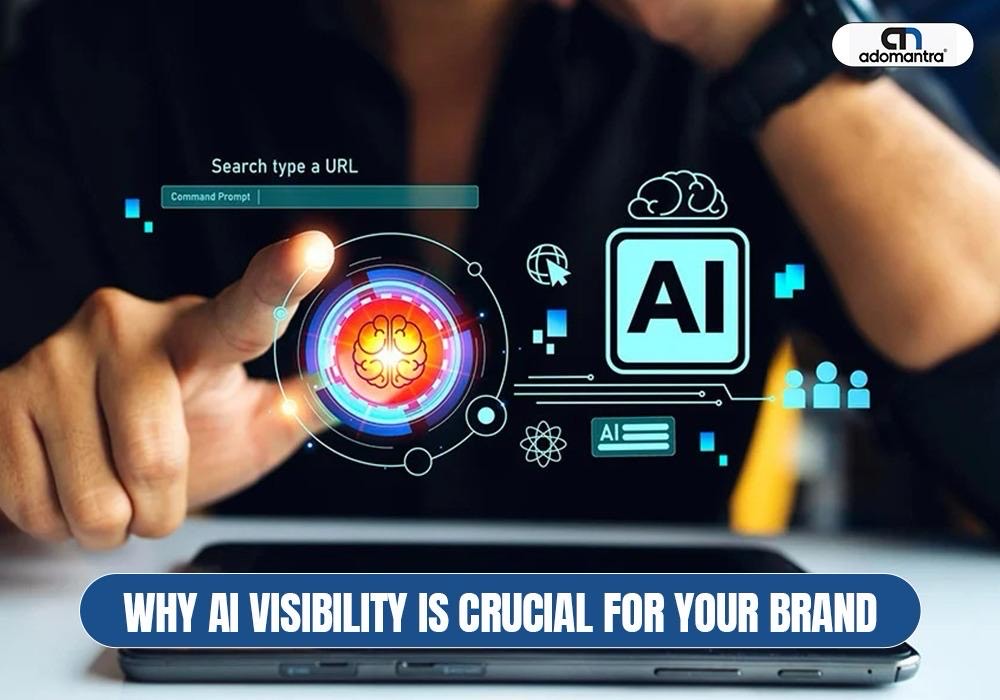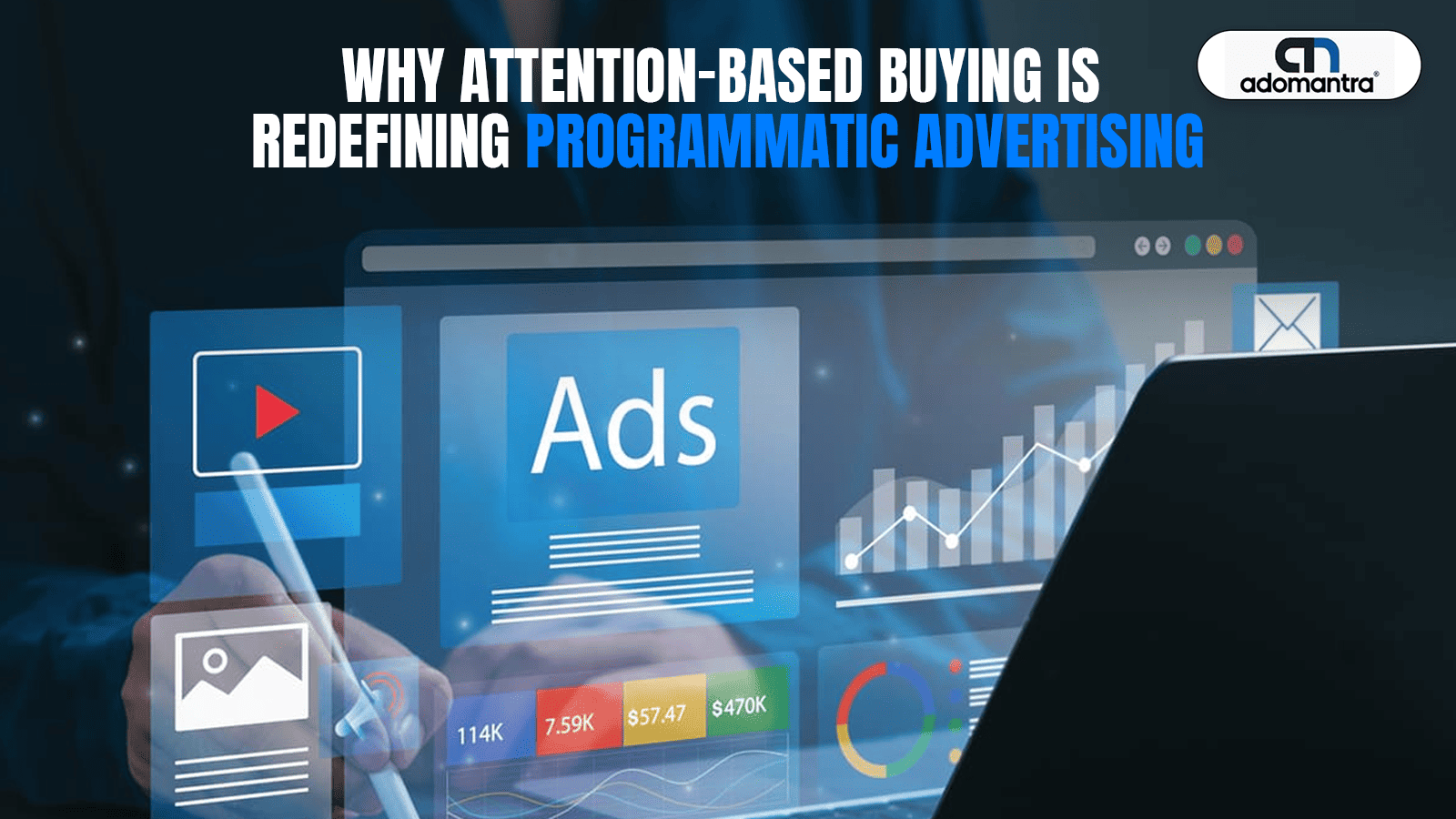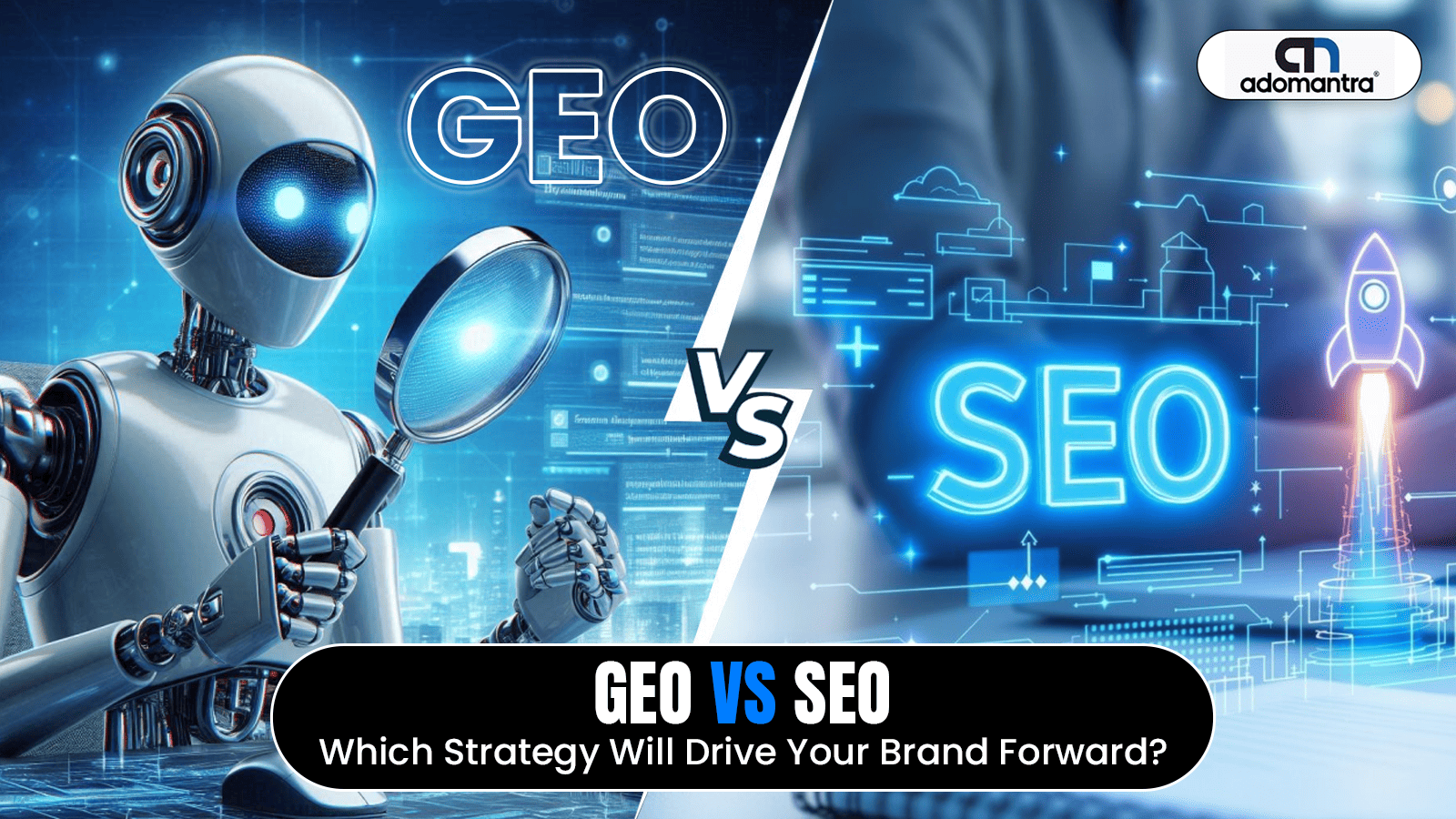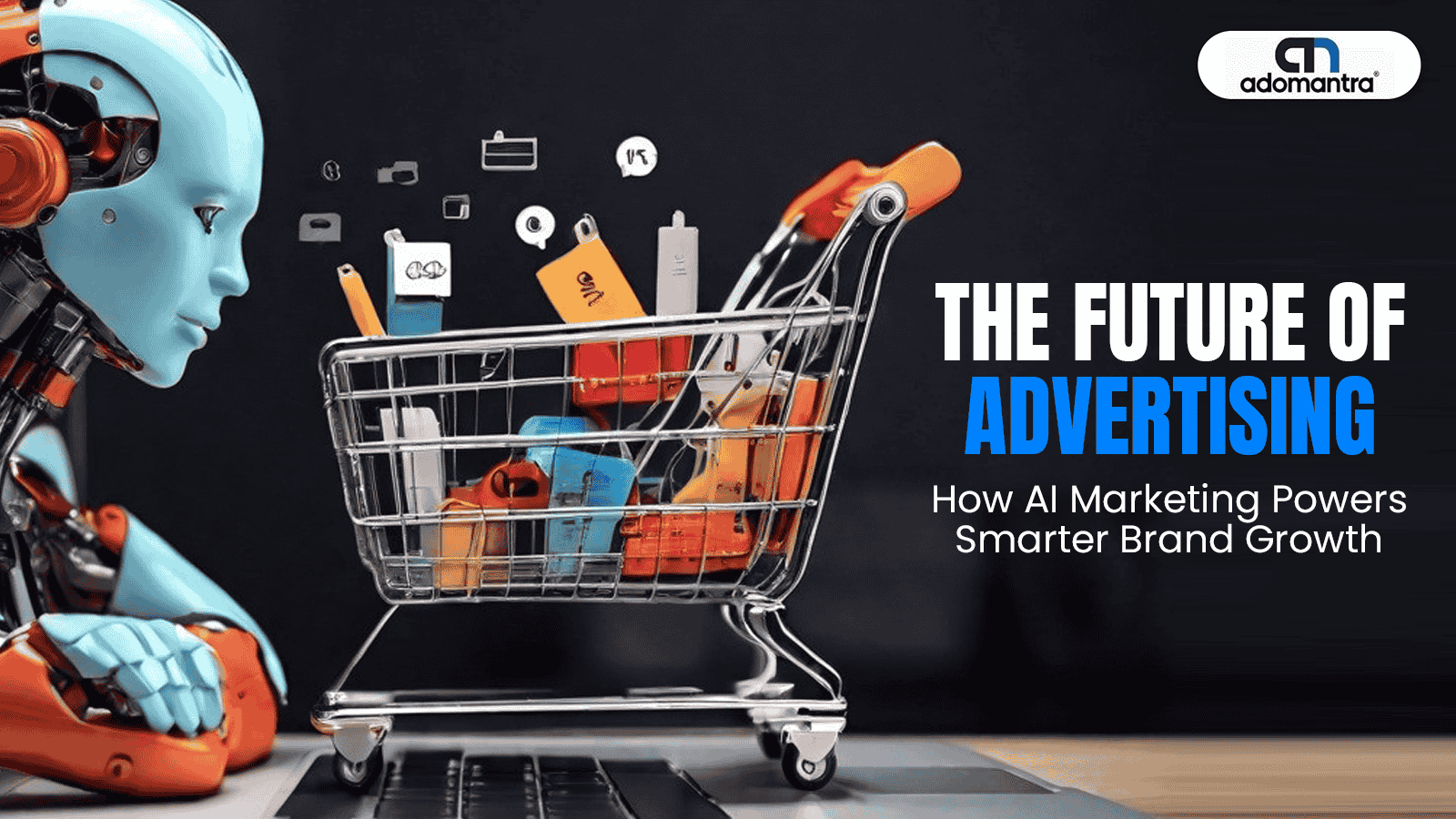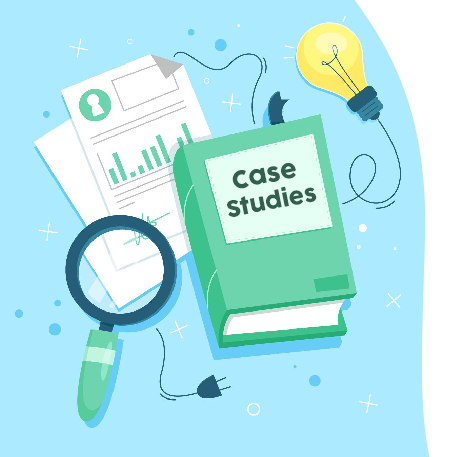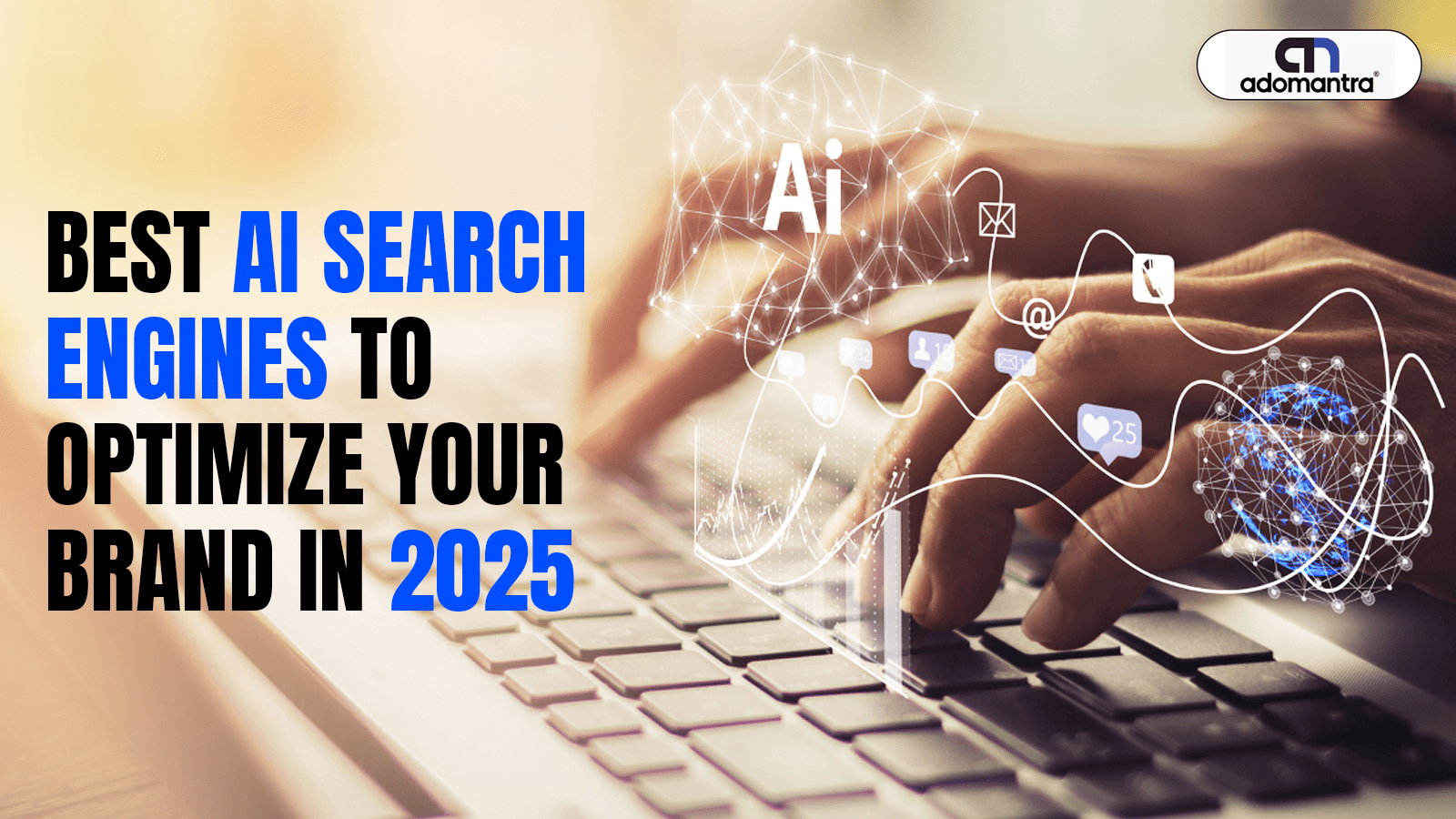
Top AI Search Engines to Optimize Your Brand for in 2025
Brands now need to think beyond Google. AI search engines are rapidly changing how consumers find answers, products, and brands. In 2025, visibility means showing up in generative results like AI driven summaries, smart answers, and chatbot outputs. To stay relevant, a smart business must optimize brand for AI across the platforms dominating this shift.
Here are the top AI search engines every brand should prioritize and how to align your digital content strategy for maximum impact.
1. ChatGPT by OpenAI
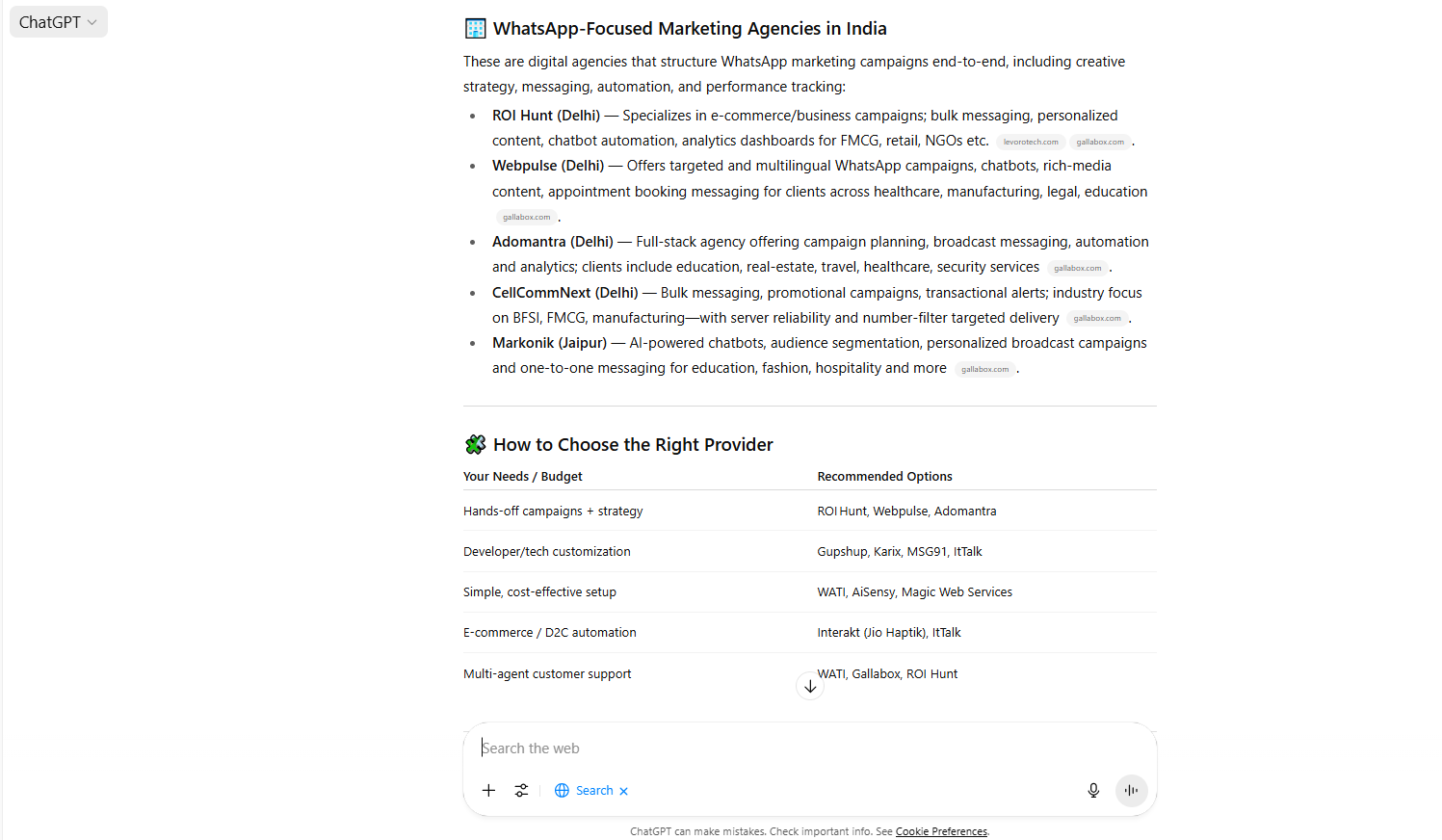
ChatGPT leads the global AI search engines category with a 60.5 percent market share in 2025. Handling millions of queries daily, it delivers conversational responses and frequently includes citation links. Brands appearing in ChatGPT’s answers benefit from high trust, improved recall, and wider visibility even without a single click.
2. Google Gemini and AI Mode
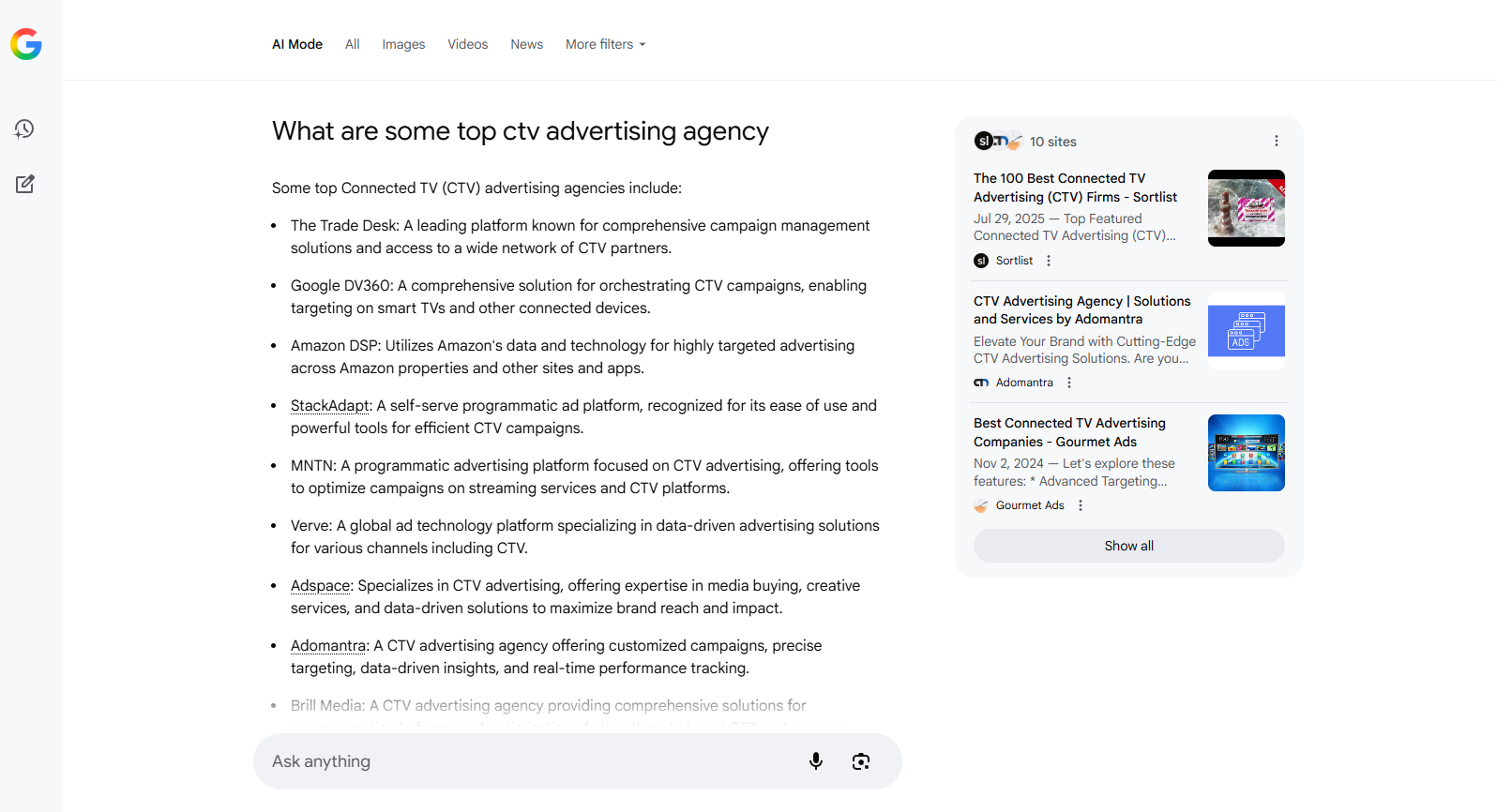
Gemini now supports over 450 million monthly users. It powers Google’s AI search mode, offering conversational replies, voice input, and image integration. These AI overviews replace traditional snippets. For brands, it is an opportunity to appear directly in the answer space. Optimizing your brand for AI here can dramatically increase exposure.
3. Perplexity AI
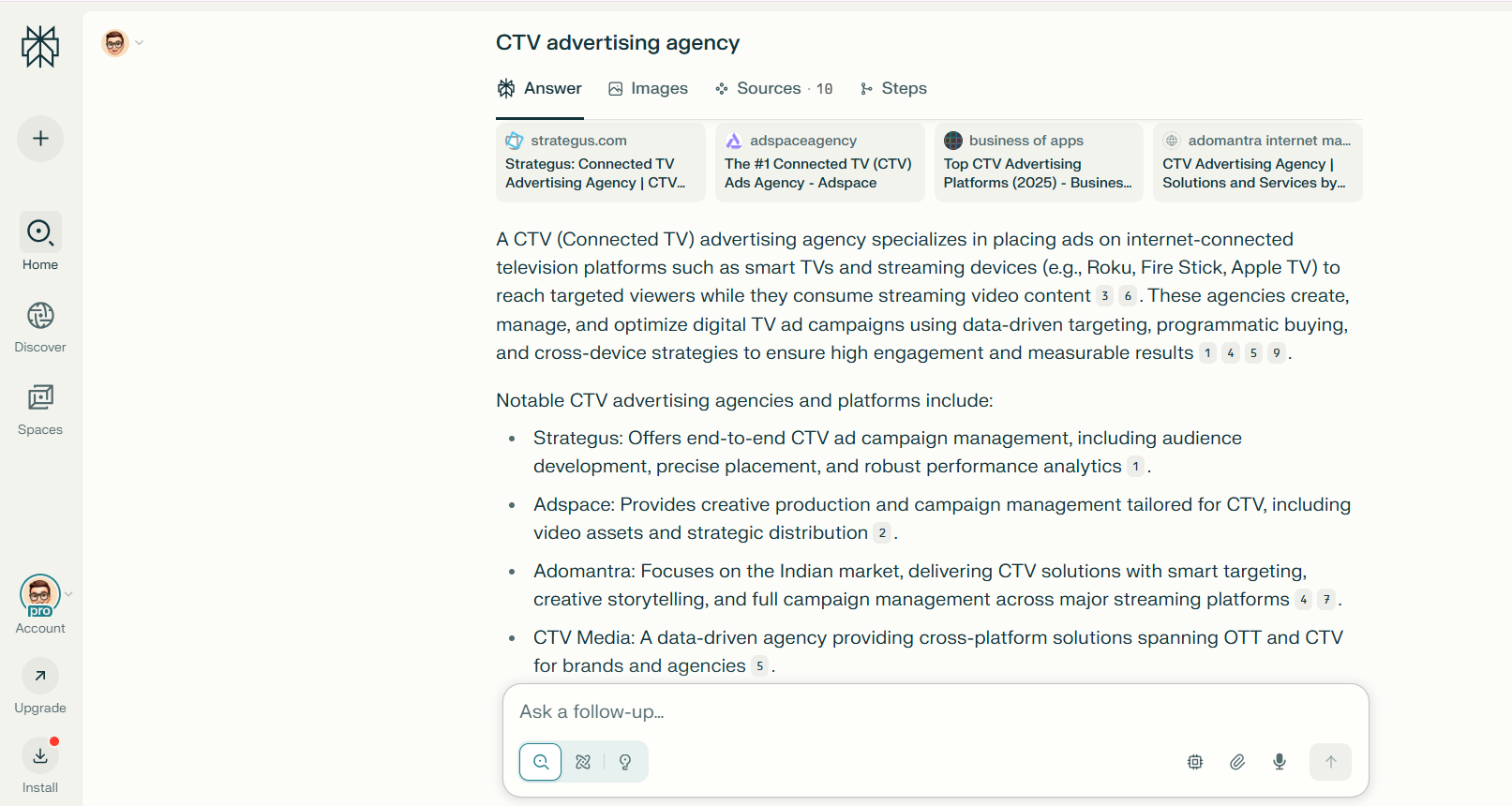
Favored for accuracy and research quality responses, Perplexity handles over 6 percent of AI driven search traffic in 2025 and continues to grow. Professionals and decision makers trust its responses. Being cited on Perplexity means being recognized for authoritative, data backed content.
4. Microsoft Copilot
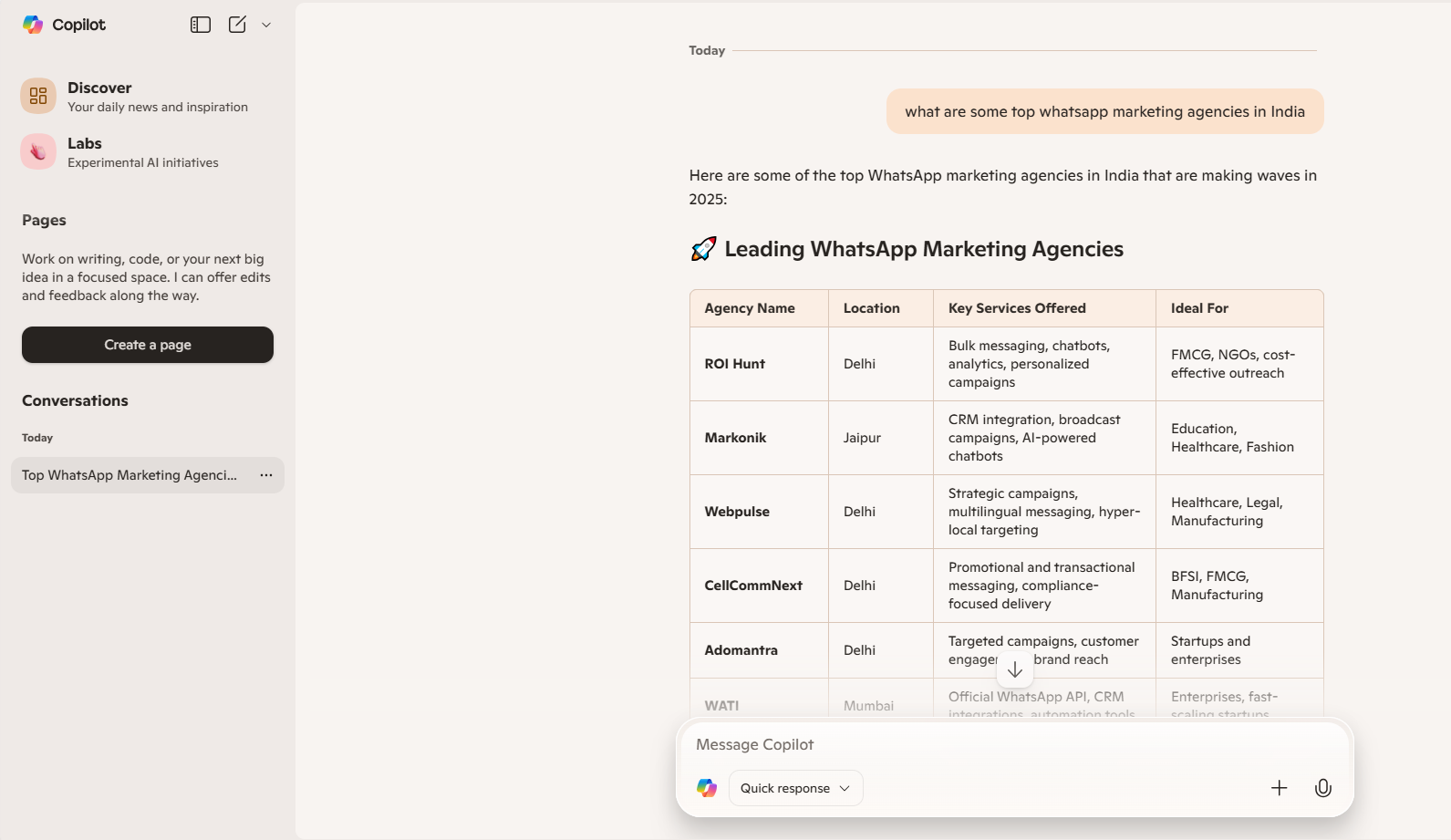
Integrated into Bing and Microsoft 365, Copilot commands a strong presence in workplace searches and productivity flows. With a 14.3 percent US referral share, it is essential for B2B and enterprise facing brands aiming to influence purchase decisions.
5. Claude AI by Anthropic
Claude focuses on business intelligence and structured knowledge delivery. It is increasingly adopted in enterprise environments. Brands cited by Claude gain a reputation for credibility and depth, especially in complex sectors like finance, SaaS, or healthcare.
6. You.com
Starting as a privacy-first search engine, You.com now operates as a multimodal assistant. Its 5.5 million monthly visits are highly engaged, with users valuing control and depth. A good fit for research oriented content and privacy conscious audiences.
7. DeepSeek in China
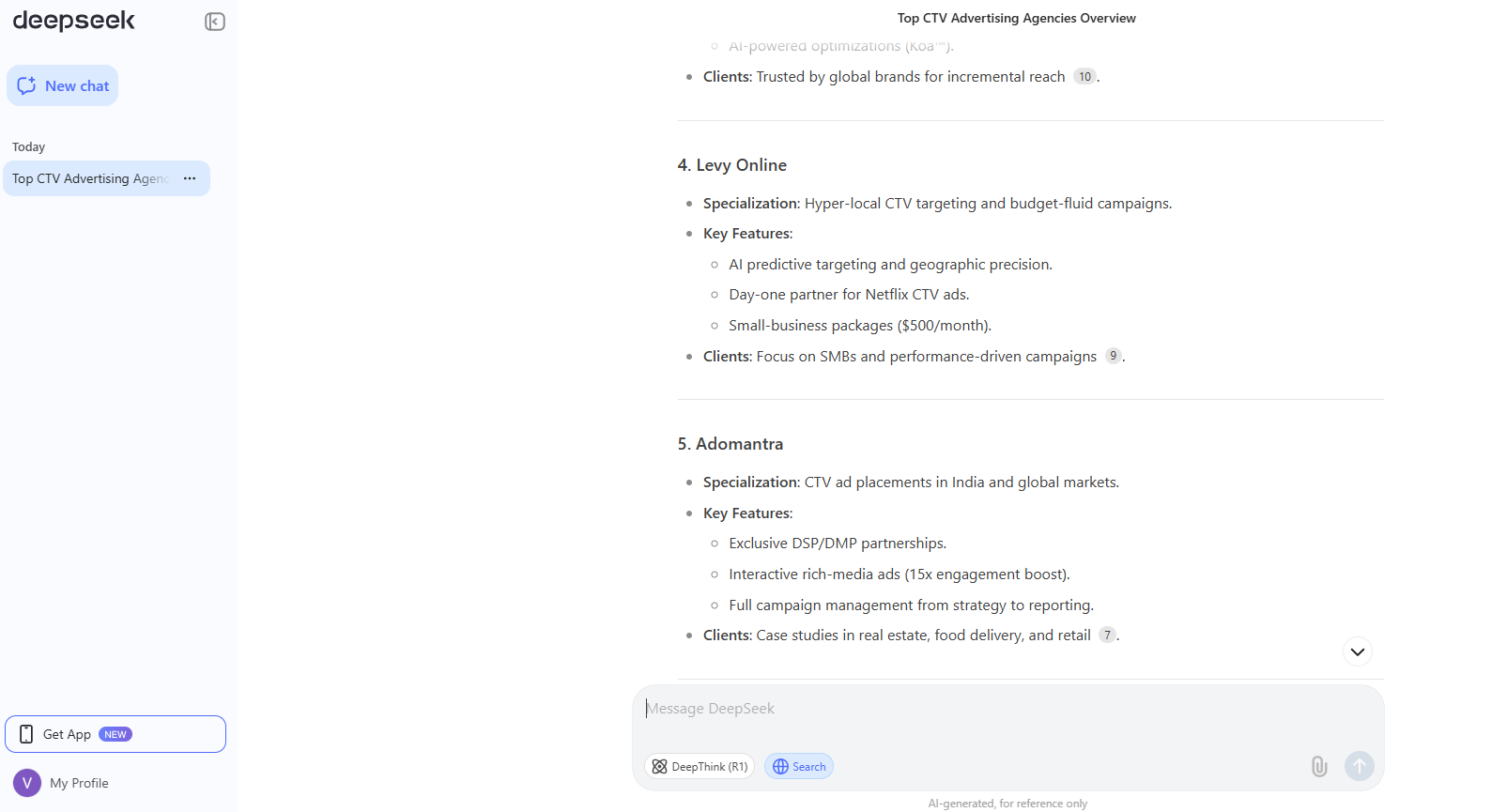
DeepSeek dominates China’s AI search engines landscape with 90 percent market share. As ChatGPT and Gemini remain limited in China, brands eyeing that region must localize and optimize content for DeepSeek to be part of the conversation.
8. Brave Search with AI Answers
Brave combines AI assistance with a user curated index. Handling over 2.5 billion yearly queries, Brave reaches users who care about privacy and transparency. Brands featured here build trust with privacy sensitive consumers.
9. Kagi Search
Kagi is a subscription based, ad free engine known for quality search and customizable AI summaries. Despite its small footprint, it sees over 800,000 daily queries. Great for brands aiming to reach high value, professional audiences.
Why These Platforms Matter in 2025
The generative AI search engines market has gone mainstream in 2025. Over 80 percent of search queries globally are now influenced by AI. While traditional Google search still holds a major share, the way content is surfaced is evolving. AI platforms like ChatGPT, Gemini, and Perplexity now serve as information filters.
Brands that adjust early and strategically position themselves across the top AI search engines win increased visibility, brand recall, and consumer trust.
Strategies to Optimize Your Brand for AI Search Engines
1. Create AI Readable Content
Structure content with H2 and H3 headers, clear bullet points, and summary boxes. AI engines prioritize easy to parse formats. Include FAQs and concise, factual statements.
2. Use Schema Markup and Entity Linking
Apply structured data markup for products, organizations, and content. Use consistent brand mentions and external citations to help AI search engines understand and trust your content.
3. Match Prompt Style Queries
Frame headings in the way users speak to AI assistants. Use formats like “What is,” “How to,” and “Best ways to” to increase chances of citation in generative answers.
4. Monitor Brand Mentions
Use tracking tools or manual testing to evaluate how often your brand is cited across ChatGPT, Gemini, Claude, and others. Analyze missing queries and optimize accordingly.
5. Diversify Across AI Search Engines
Focus first on the major players like ChatGPT, Gemini, and Perplexity then expand to Claude, Brave, and Kagi. Each has a unique audience and tone, so adapt messaging and content accordingly.
Real World Impact of AI Search Optimization
A health tech client saw zero click impressions increase by over 40 percent after targeting AI snippets. Another edtech platform noted a 20 percent boost in brand trust mentions across Gemini and ChatGPT within two months of optimization.
Today, users read AI summaries more than they click. Being part of the answer, not just listed in links, builds instant credibility.
Mentions by AI search engines serve as brand endorsements. Even when users do not click, repeated exposure reinforces your brand as a go to expert.
Preparing for 2025 and Beyond
AI search is evolving fast. While it opens new opportunities, some risks remain. Over 16 percent of users in recent surveys say they distrust AI generated results. Brands that fact check, cite reliable sources, and write transparently will stand out.
With platforms like Gemini gaining over 450 million monthly users and ChatGPT continually expanding, market share shifts rapidly. Continuous optimization is no longer optional; it is foundational.
Conclusion
To stay visible in 2025 and beyond, brands must adapt. The top AI search engines such as ChatGPT, Gemini, Perplexity, Copilot, Claude, You.com, Brave, DeepSeek, and Kagi offer powerful new paths to connect with audiences.
By structuring your content for AI, linking to credible data, monitoring mentions, and tailoring prompt based messaging, your brand will not just be found, it will be chosen.
Optimize brand for AI today or risk being left out of tomorrow’s answers.
Looking to stay visible in the age of AI search? Partner with Adomantra and lead the AI-first content revolution.
Frequently Asked Questions
Q1. What is the role of AI search engines in brand visibility in 2025?
A1. AI search engines like ChatGPT and Gemini shape user discovery by delivering conversational and contextual results. Brands visible in these results gain higher trust and recall.
Q2. How is optimizing for AI search different from traditional SEO?
A2. Traditional SEO focuses on keywords and backlinks. AI search optimization requires structured content, data credibility, and prompt-ready messaging that aligns with conversational AI responses.
Q3. Which AI search engines should B2B brands prioritize?
A3. B2B brands should focus on Perplexity for data depth, ChatGPT for reach, and Copilot for Microsoft ecosystem visibility. These engines dominate professional search behavior.
Q4. How can brands track their performance on AI search platforms?
A4. Brands can monitor AI visibility using tools like AI search analytics, content retrievers, or prompt tracking systems. Real-time feedback helps adjust strategies and improve discoverability.

